Corpus Christi Blog

Relational Prayer — The ARRR Method
11-26-2023Weekly ReflectionJen Arnold, M.A. in Theology and CatecheticsPrayer, at its foundation, is communication with God. There are many ways to pray, including, having a casual conversation with God to share what’s on your mind, repetitive prayer to help facilitate meditation, scriptural prayer, and liturgical prayer (where we worship God in community). Today, I will talk about a type of prayer called relational prayer. The method follows the acronym ARRR and is sometimes affectionately called “pirate prayer.”
READ MORE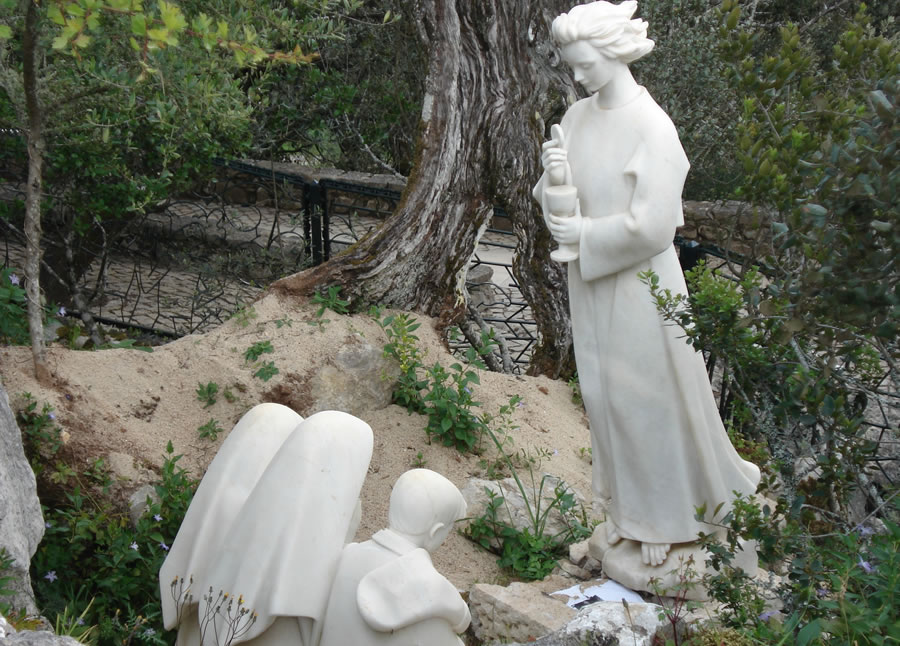
Private Revelation
11-19-2023Weekly ReflectionJen Arnold, M.A. in Theology and CatecheticsToday, I would like to spend some time deepening our understanding of what is referred to as “private revelation,” how it is authenticated, and how it can enhance our faith. Recognizing that God is not absent, and that He can, and does, still communicate with His people, the Catholic Church maintains a unique openness to private revelation, which serves to draw our attention to supernatural realities. However, before we get too far, I want to explain “public revelation” briefly.
Public revelation refers to how God has made Himself known by deeds and words to His people throughout salvation history. It includes all of Scripture, but most fully in each of the Gospels, as God comes to live amongst us in human flesh to teach us His will for us. Jesus is the fullness of public revelation; as such, there will be no new public revelation until He comes again. The Catechism states, "Yet even if Revelation is already complete, it has not been made completely explicit; it remains for the Christian faith gradually to grasp its full significance over the course of the centuries,” (CCC 66).
READ MORE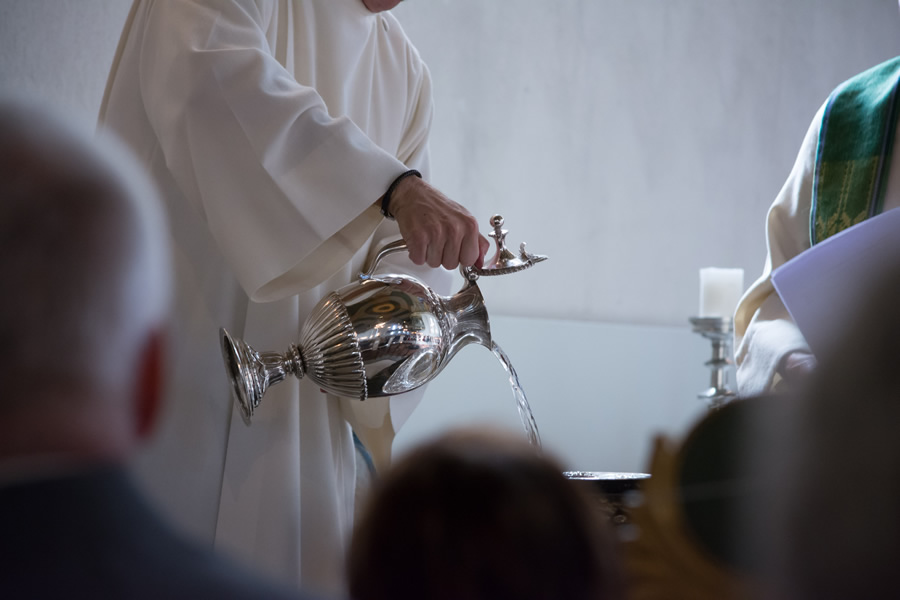
Holy Orders - Part 3: Deacons
11-12-2023Weekly ReflectionJen Arnold, M.A. in Theology and CatecheticsThis week concludes a three-week examination of the three degrees of Holy Orders. First, we talked about bishops, who receive the fullness of the Sacrament. Then, we looked at the second degree, priests, who are on the front lines, directly ministering to the people of the Church. Now, we will look at the lowest degree of Holy Orders – the deacons.
The word “deacon” comes from the Greek word diakonos, which means "servant." While the priest performs his duties in persona Christi, or in the person of Christ, the deacon operates in persona Christi servi, as an icon of Christ the Servant. There is a threefold aspect to the ministry – Word, Sacrament, and Charity – which I will expand on in a moment.
READ MORE
Holy Orders - Part 2: Priests
11-05-2023Weekly ReflectionJen Arnold, M.A. in Theology and CatecheticsLast week, we talked about bishops and how they receive the fullness of the Sacrament of Holy Orders, giving them particular and unique gifts in the areas of teaching the Faith and governing the Church. Today, we will look more closely at the second order of holy orders, the presbyterate, which is more commonly known as the priesthood. Out of the three orders, priests are the ones which we, as laypersons, encounter the most in our day-to-day spiritual journeys.
Choosing to be a priest is a bit different than choosing matrimony as one’s vocation. Comparatively speaking, there is less preparation involved with marriage and less scrutiny over one’s fitness to carry out the obligations of a spouse and parent properly. At some point in his life, a man may discern that he may not feel called to the Sacrament of Matrimony and may instead be called to the life of the priesthood, which requires more investigation. He will then enter a period of formation and deeper discernment, with the length of time varying among diocese, institutions, and orders, but typically not shorter than five years.
READ MORE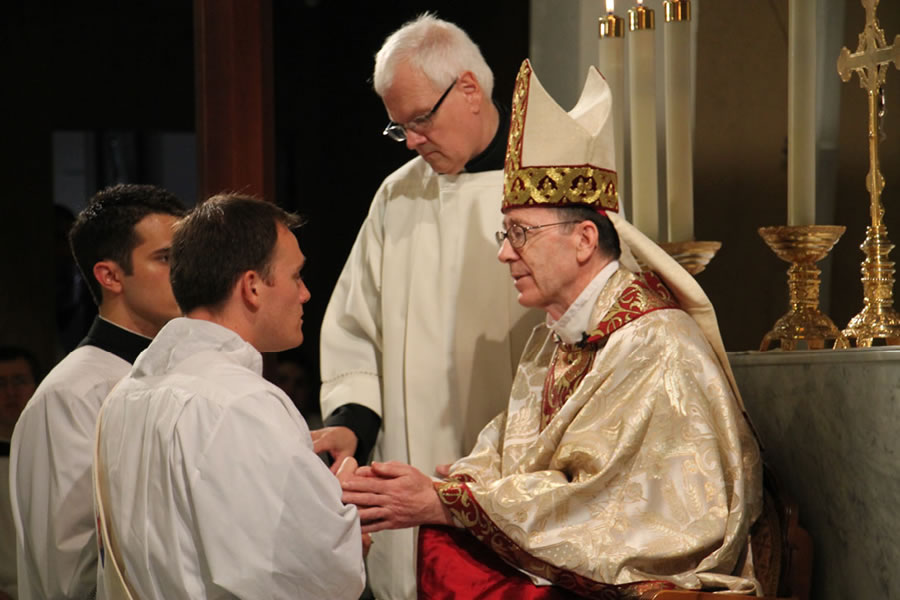
Holy Orders - Part 1: Bishops
10-29-2023Weekly ReflectionJen Arnold, M.A. in Theology and CatecheticsWhile I gave a general overview of the Sacrament of Holy Orders in a previous series on the seven sacraments, which can be found on my website, I’ll cover it more in depth over the next few weeks. This sacrament is one that is ordered to the service of others for the purpose of the salvation of souls according to the mission of the Church at large (see CCC 1534). Unique to this sacrament is that there are three hierarchical degrees within it – episcopacy, presbyterate, and diaconate, which are more commonly referred to as bishops, priests, and deacons. Thus, this three-part series will highlight the characteristics proper to each degree.
READ MORE
Faithful Stewardship of God’s Gifts
10-22-2023Weekly ReflectionJen Arnold, M.A. in Theology and CatecheticsOctober is when the Church encourages us to think about stewardship as a scripturally rooted principle of our Faith. Stewardship is the care of something that does not inherently belong to a person, but is instead entrusted to him. Since we know that everything we have comes from God, we, therefore, must care for those gifts in a way that brings Him glory. As we head into the final months of the year, it is a good time for us to pause for some introspection and reflect on how well we have been faithful stewards of God's gifts in the past year. Then, with thoughtful intention, we can look forward to how we might be better stewards of our gifts in the coming year.
Recall the Parable of the Talents (Matt 25:14-30), where a man leaves his possessions in the care of his servants "each according to his own ability." When he returns, he finds that some of his servants invested the talents entrusted to them, which, as a result, multiplied the man's wealth. One servant, however, buried his talent, which ultimately produced nothing but the anger of his master for being lazy and not even doing the bare minimum.
READ MORE
The Unforgiveable Sin
10-15-2023Weekly ReflectionJen Arnold, M.A. in Theology and CatecheticsTypically, when we reflect on our shortcomings, regrets, and tendencies toward certain sins, we find solace in the mercy God extends to us, particularly in the Sacrament of Reconciliation, but also in a general sense. We are all aware of the brokenness of ourselves, our loved ones, and humanity as a whole. We recognize that without God's infinite mercy, there would be no hope for any of us, and our life on earth would be an exercise in futility. Trust in God's mercy is the very power by which we find the strength to stand up after every fall and keep moving forward, trying to improve with every step. However, one sin has been declared in all three synoptic gospels by Jesus himself as "unforgivable" – blasphemy against the Holy Spirit. Today, we will unpack the unforgivable sin and how to avoid it.
READ MORE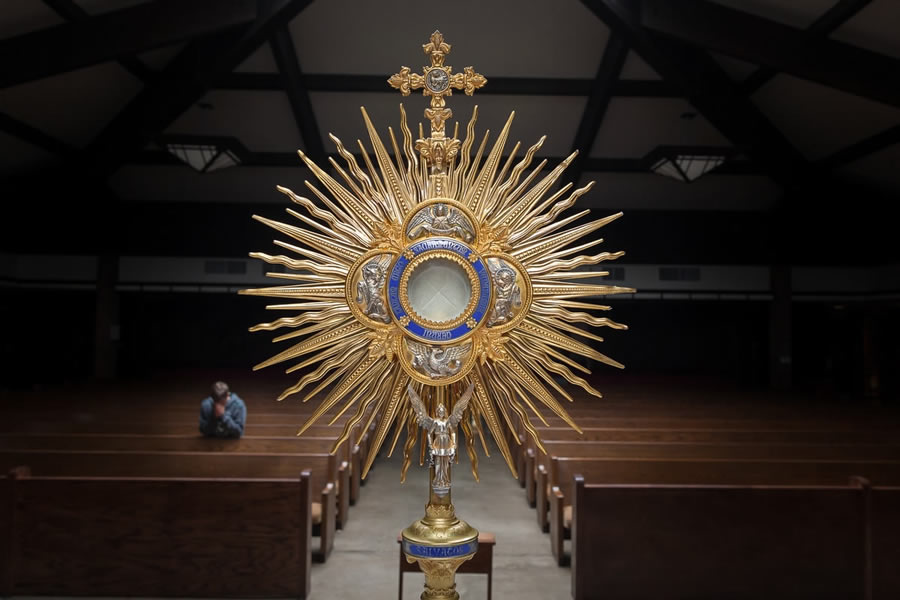
Eucharistic Adoration
10-08-2023Weekly ReflectionJen Arnold, M.A. in Theology and CatecheticsAs you know, we are in the midst of a period of Eucharistic revival, which has been called for by our bishops. Over the decades, we have seen a decline in the belief of the true presence of Jesus in the Eucharist and, as a result, a decline in reverence and devotion to the Blessed Sacrament. As a natural consequence of this decline in belief and devotion, the value of Eucharistic adoration is often neglected.
There are great miracles, healings, and other graces to be received through devotion to the Blessed Sacrament in adoration. To this end, we will explore what Eucharistic adoration is and how we participate in a practical sense.
READ MORE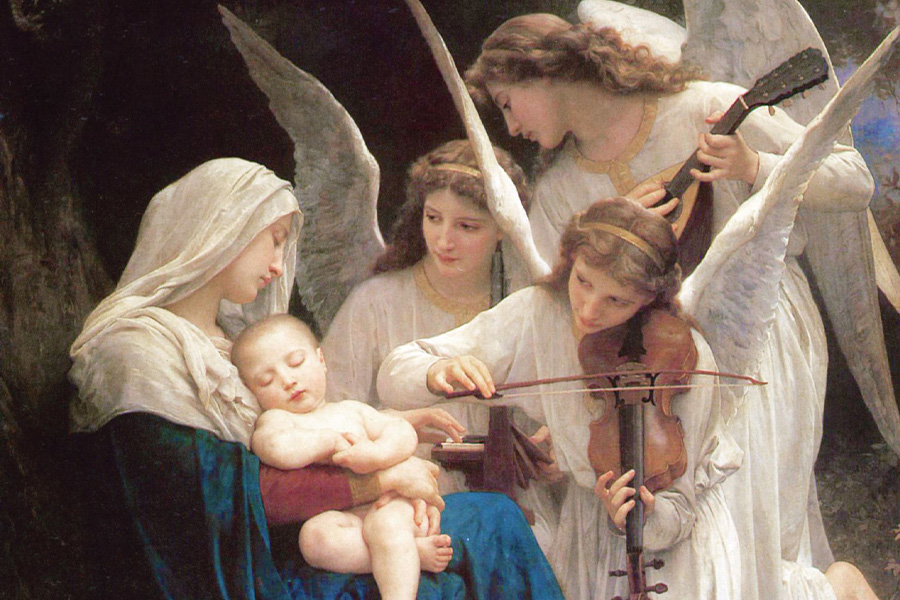
Guardian Angels
10-01-2023Weekly ReflectionJen Arnold, M.A. in Theology and CatecheticsTomorrow is the feast of the Guardian Angels. I wanted to take this opportunity to not only acknowledge them, but to also explain why and how they have a very special mission to help each of us to get to Heaven. Then, hopefully with this deeper understanding, each of us might be encouraged to deepen our relationship with our own personal guardian angel, who truly is a dear friend given to each of us by God.
In his book, Dominion, Catholic exorcist, Fr. Chad Ripperger, explores the intersection between spiritual warfare and human psychology. Being an exorcist as well as having earned a master’s degree in Thomistic studies, Fr. Ripperger has extensive and well-formed insight into the spiritual realm of the angels. While the book is hardly light reading, it is a useful resource regarding the angelic world, including a section devoted specifically to guardian angels, which is my primary reference for this piece.
READ MORE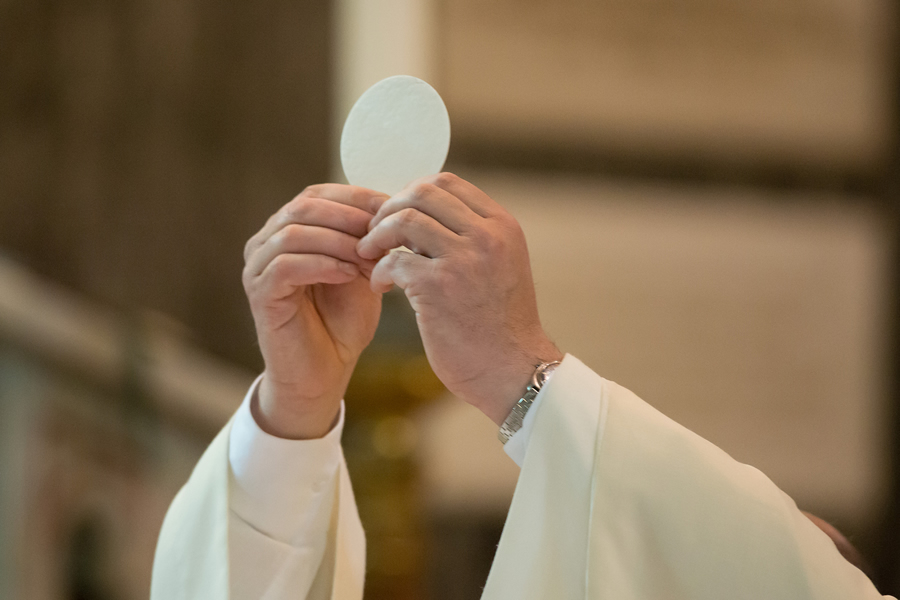
Cardinal Ratzinger’s Eucharistic Homilies Part 4: What Corpus Christi Means to Me
09-24-2023Weekly ReflectionJen Arnold, M.A. in Theology and CatecheticsWe have now reached the final reflection in our four-part series on Cardinal Joseph Ratzinger’s Eucharistic homilies. This homily is entitled, What Corpus Christi Means to Me: Three Meditations. It is unclear when and where this homily was given or if the three meditations were perhaps even separate homilies at one point. Regardless, the three meditations are presented together as the fourth Eucharistic homily in his collected works on the theology of the liturgy. The reflections are a bit long, so I will draw out the key points as they relate to our focus on Eucharistic revival.
After reviewing the Church’s various approaches to the feast of Corpus Christi since the feast’s inception, Ratzinger directs our attention to how the Council of Trent addressed the feast and how it relates to us in modern times. “It [Trent] said that the purpose of Corpus Christi was to arouse gratitude in the hearts of men and to remind them of their common Lord,” (Decr. De sc. Eucharistia – session 13, October 11, 1551). From this statement, Ratzinger extracts three purposes:
READ MORE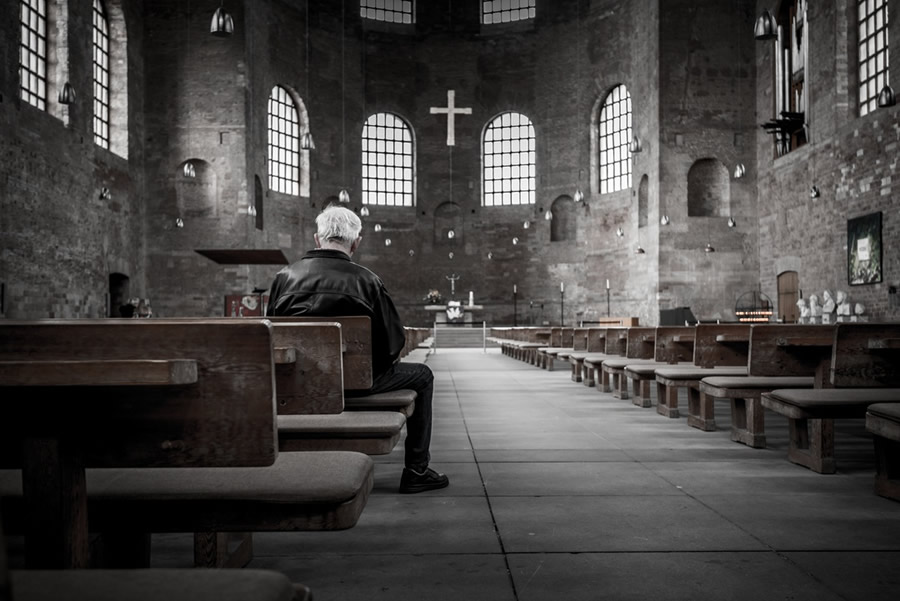
Cardinal Ratzinger Homilies Part 3: Standing before the Lord, Walking with the Lord, and Kneeling before the Lord
09-17-2023Weekly ReflectionJen Arnold, M.A. in Theology and CatecheticsToday we look at the third of Cardinal Joseph Ratzinger’s Eucharistic homilies in this four-part series. Although it is unclear when he first preached this homily, we know it was intended for the feast of Corpus Christi. Ratzinger also felt it was important enough to include in another one of his books entitled, God is Near Us: The Eucharist, the Heart of Life (2003). In this homily, Ratzinger reflects on the three distinctive elements that emphasize the reality of Christ’s presence in the Eucharist and are present in the celebration of the feast of Corpus Christi: standing before the Lord, walking with the Lord, and kneeling before the Lord.
READ MORE
Cardinal Ratzinger’s Eucharistic Homilies Part 2: Rejoice in the Presence of the Lord
09-10-2023Weekly ReflectionJen Arnold, M.A. in Theology and CatecheticsToday’s second installment of the four-part series on Cardinal Joseph Ratzinger’s Eucharistic homilies comes from one given on the 22nd Sunday of Ordinary Time in 1979. For context, the first reading on that Sunday was from Deuteronomy. It recounts Moses speaking to the Israelites about the goodness of God, who provided the people a law that allows them to know His will. In return for their obedience to His law, God promises blessings on His people.
Ratzinger begins His homily by quoting a line from the first reading: “What great nation is there that has a god so near to it as the Lord our God is to us, whenever we call upon him?” (Deut 4:7). He says that this statement is an expression of joy and gratitude because God had made Himself so available to the Israelites and present amongst them in His law. Now, if the Israelites have this much joy and gratitude for God’s presence in the law, Ratzinger asks how much more joy and gratitude ought we to have because we have God present with us in the Eucharist? With the Eucharist comes a new depth to the presence of God as He truly and physically dwells with us and makes His flesh available to us, which we can experience with our physical senses. We can see Him, touch Him, and taste Him in a way that was not available to the people of the Old Testament.
READ MORE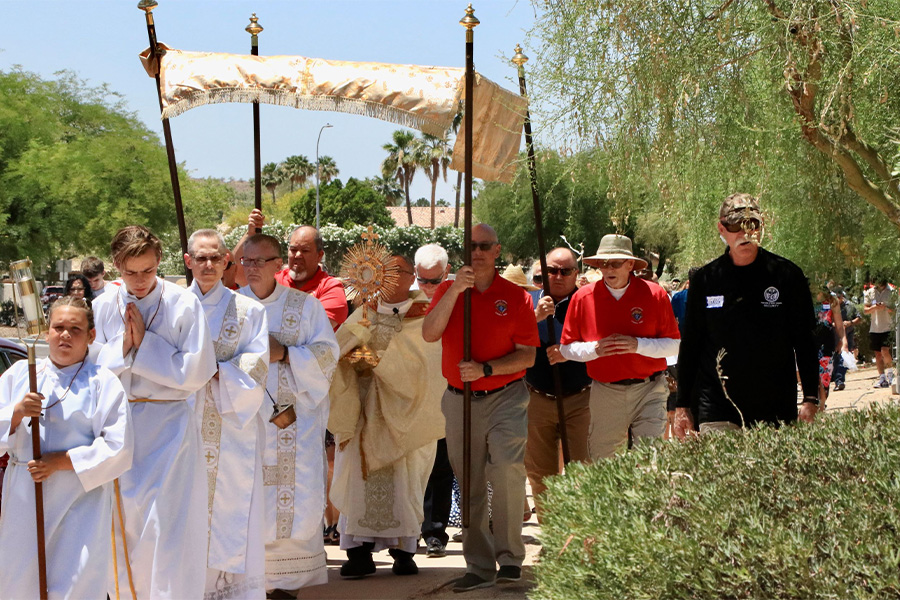
Cardinal Ratzinger’s Eucharistic Homilies Part 1: Eucharistic Adoration & Sacred Nature
09-03-2023Weekly ReflectionJen Arnold, M.A. in Theology and CatecheticsCardinal Joseph Ratzinger, later, Pope Benedict XVI, was one of the greatest and most prolific theologians of our modern times, contributing volumes of written work to the treasury of our faith. In 2008, Benedict put together a volume called Collected Works: Theology of the Liturgy, which consisted of his previous writings. These writings were all written before he became Pope and covered every aspect of the liturgy. In part C, which deals specifically with the Eucharist, Benedict included four homilies he gave during the late 1970s and early 1980s on the Eucharist. As we find ourselves in the midst of the Church-declared Eucharistic Revival, I thought it might be interesting to examine the Cardinal’s thoughts concerning the Eucharist, since they were written much closer to the Second Vatican Ecumenical Council. To that end, today begins a four-part series in which I aim to summarize these homilies.
READ MORE